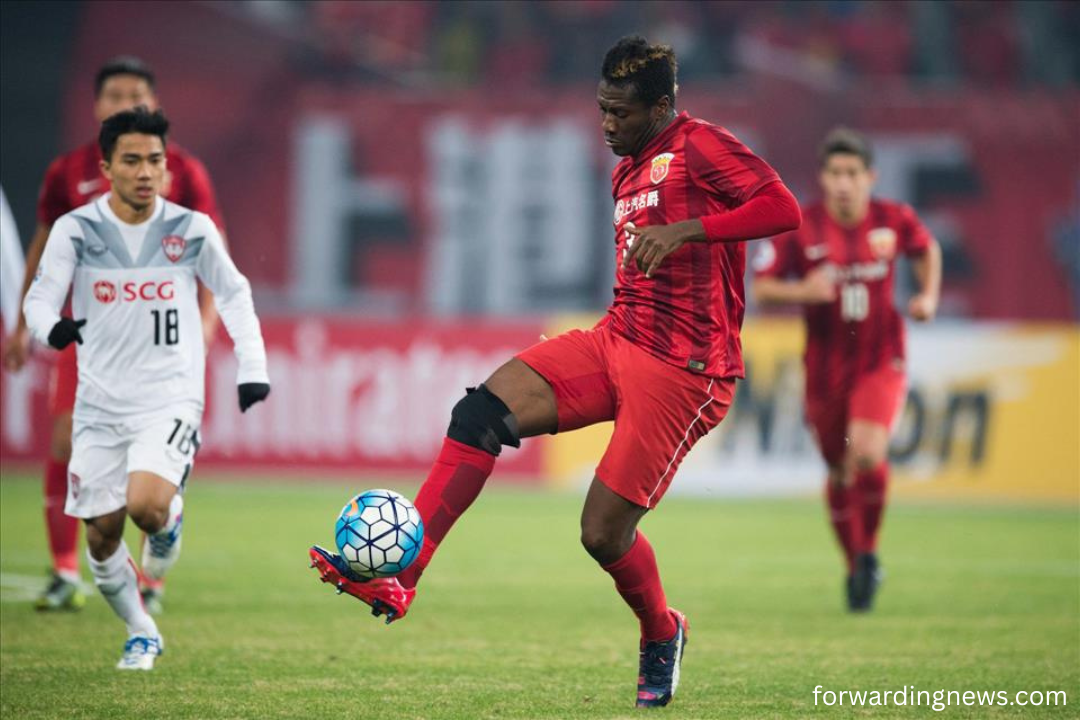Football, the world’s most popular sport, has long been a vehicle for international opportunity. In recent years, a growing trend has emerged as African footballers increasingly pursue careers in China. This shift not only reflects changes in global football dynamics but also highlights broader economic and cultural exchanges between Africa and Asia.
China’s Rising Role in Global Football
Once considered a minor player in global football, China has made strategic investments to elevate its status. The Chinese Super League (CSL), bolstered by government support and private capital, has attracted international attention by signing foreign players, including many from Africa. These efforts align with China’s broader goals to become a football powerhouse and boost its global profile.
The Government’s Football Dream
The Chinese government’s long-term football plan includes establishing thousands of football academies, improving domestic leagues, and bidding for the FIFA World Cup. These ambitions require international expertise and talent, opening doors for foreign footballers—mainly from Africa.
Why African Players Are Moving to China
Financial Opportunities
For many African footballers, China offers financial incentives that surpass those available in domestic or even European leagues. Players can earn significantly higher salaries, gain sponsorship deals, and receive other monetary perks that make the move lucrative.
Playing Time and Visibility
Unlike in Europe, where African players often face stiff competition for starting roles, Chinese clubs offer more regular playing time. This increased exposure allows footballers to develop their skills and raise their international profiles.
Professional Development
African footballers see China as a stepping stone. While the CSL may not yet rival the top European leagues, it offers high-quality facilities, professional coaching, and a competitive environment that can serve as a springboard for future moves.
Impact on African Football
Talent Drain vs. Talent Development
The migration of African players to China raises concerns about talent drain from local leagues. However, it also has positive effects. Many players invest back in their home countries—building academies, funding community programs, and mentoring young talent. These contributions help sustain and grow African football from the grassroots level.
Inspiration for Future Generations
Success stories from players who have leaped to China inspire a new generation of footballers. Their journeys show that football can be both a career and a pathway to international success.
Notable African Footballers in China
Several African players have made headlines for their performances in China. Notable names include:
- Cédric Bakambu (DR Congo): Became one of the highest-paid players in Asia during his stint with Beijing Guoan.
- Obafemi Martins (Nigeria): Brought experience and goal-scoring prowess to Shanghai Shenhua.
- Gervinho (Ivory Coast): Known for his speed and skill, he contributed significantly to Hebei China Fortune.
These players and others have helped elevate the profile of African talent in Chinese football.
Challenges African Footballers Face in China
Cultural and Language Barriers
Adapting to life in China presents unique challenges. Language differences, dietary changes, and unfamiliar customs can affect players’ performance and well-being. Clubs are increasingly offering support systems, but the transition remains a hurdle for many.
Short-Term Contracts and Uncertainty
While financial incentives are strong, many African footballers face short-term contracts and uncertain futures. Some players report abrupt contract terminations or payment delays, leading to instability in their careers.
How African Football Benefits Long-Term
Skill Transfer and Experience
African footballers returning from China often bring back enhanced tactical understanding, physical conditioning, and professionalism. These gains contribute to the overall improvement of African domestic football.
Strengthening Africa-China Relations
Football also serves as soft diplomacy. As African athletes succeed in China, cultural bonds deepen, creating opportunities for bilateral collaboration in sports, education, and commerce.
The Role of Agents and Scouts in the Football Shift
Agents and scouts who maintain networks across continents have facilitated the rise in African players moving to China. These intermediaries identify talent, negotiate contracts, and manage logistics. While some operate ethically, others have been criticized for exploiting players, making transparency and regulation critical in this evolving market.
The Future of African Players in Chinese Football

Sustainable Integration
For this trend to continue, Chinese clubs must invest in foreign talent and long-term integration. Programs that teach Mandarin, offer family support, and provide post-career opportunities can create a more sustainable ecosystem.
Potential of Youth Academies
Joint ventures between African and Chinese academies can benefit both sides. Africa offers a deep pool of raw football talent, while China provides infrastructure and funding. Such partnerships could redefine the future of international football development.
Frequently Asked Questions (FAQ’s)
Why are African footballers moving to China?
African footballers are attracted to China primarily due to better financial incentives, more consistent playing time, and the opportunity to develop their professional careers in a growing football market.
How does China benefit from African football talent?
China gains skilled and experienced players who elevate the level of domestic competitions, contribute to its global football ambitions, and help inspire local athletes to improve their game.
What challenges do African footballers face in China?
Common challenges include language barriers, cultural adjustment, short-term contracts, and occasional administrative or payment issues that can impact career stability.
Is this football migration trend hurting African leagues?
While there are concerns about talent drain, many African players reinvest in their home countries, supporting youth development and infrastructure, which can positively impact local football in the long run.
Are African footballers in China only playing in top-tier clubs?
Not always. While many join Chinese Super League clubs, others play in lower divisions, where they can still earn well and get valuable playing experience.
How long do African footballers usually stay in China?
The length of stay varies widely. Some remain for just a season or two, while others build multi-year careers depending on performance, adaptation, and contract opportunities.
What role do agents play in this migration trend?
Agents are crucial in identifying opportunities, negotiating contracts, and managing logistics for African footballers moving to China. However, concerns about unethical practices make proper regulation necessary.
Can this migration trend help African football in the future?
Yes. Players returning from China often bring back valuable experience, training discipline, and financial resources that can contribute to the development of football across Africa.
Conclusion
The movement of African footballers to China marks a significant chapter in the evolution of global football. While challenges remain, the trend offers substantial benefits for both African players and the Chinese football landscape. As the sport continues to globalize, such shifts represent not just migration but mutual growth and new horizons in the world of football.

